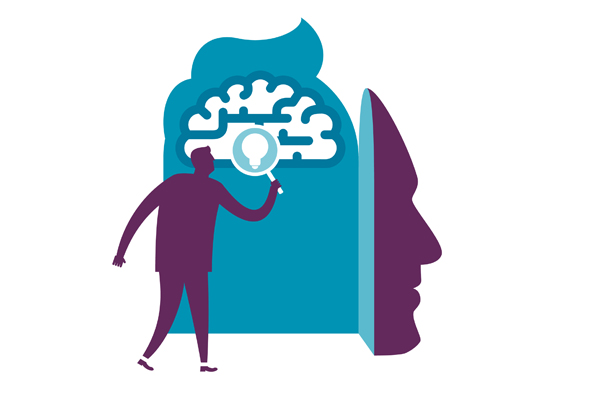The brain is arguably the most important, most complicated organ in the human body. It is in charge of everything. It runs in the background, keeping us alive, and, in the foreground as the home of our consciousness and facilitator of the outward expression of what it means to be human. This is why, understandably, when a person experiences a traumatic brain injury, there is so much fear. Compassionate Care Home Health Services’ Mid Michigan home care team believes that understanding the possible traumatic brain injury symptoms in relation to the location in the brain where the injury occurred can help families better understand and make more informed choices regarding their loved one’s care.
Frontal Lobe
The frontal lobe is home to an individual’s personality, intelligence, and emotions. It is the area of the brain that regulates concentration, makes judgements, and problem solves. And it controls body movement, including speech and writing. The effects of a frontal lobe injury can include changes and/or difficulty with the core functions controlled by the frontal lobe as well as more subtle manifestations of the core functionality, such a lack of inhibition, an impaired sense of smell, vision loss, persistence of a single thought, and mood swings.
Parietal Lobe
The parietal lobe is home to our understanding of language, our sense of touch, our spatial awareness, visual perceptions, and our sense of time. When this area of the brain is injured, people might experience difficulty reading, the inability to draw or name objects, difficulty distinguishing left from right, difficulty with math, and an unawareness of or neglect of certain body parts. They will also frequently have difficulty with eye-hand coordination.
Occipital Lobe
The occipital lobe is the home of sight. The effects of an occipital lobe injury might include vision problems, such as blurred vision or blind spots, hallucinations, visual illusions, the inability to recognize the movement of an object, or difficulties with reading and writing.
Temporal Lobe
The temporal lobe is the home to our language comprehension, memory, hearing, learning, and sequencing. It lets us recognize faces and generates emotions. The effects of a temporal lobe injury can include difficulty with key functions as well as changes in sexual behavior, persistent talking (particularly with right lobe damage) and increased aggression.
Cerebellum
The cerebellum manages movement, balance and coordination. A cerebellum injury can cause an individual to lose the ability to do things that require coordination, such as walking, talking, or reaching out to grab something. It can also cause tremors, dizziness and/or slurred speech.
Brain Stem:
The brain stem controls the basic mechanism of life, including heart rate, respiration, digestion and blood pressure. It is the home of the startle response and reflex emotions, wake and sleep cycles, and our ability to sneeze, cough, vomit, and swallow. Brain stem damage can lead to issues with all of these basic mechanisms, including effecting speech, due to a decreased capacity for breathing.
The brain, though it is made up of parts, does function as a whole. Difficulties with behaviors or functions can cascade, as can achievements gained through rehabilitation. If you have a loved one with a brain injury and need help with caregiving due to the behavioral or physiological effects of the person’s trauma, Compassionate Care Home Health Services can help. Contact our Mid Michigan home care team to schedule your free care consultation at 877.308.1212.

